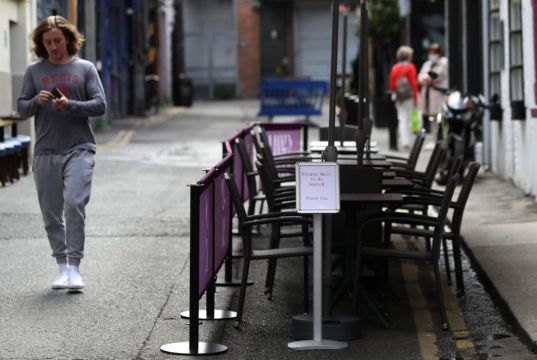The head of the ESRI’s behavioural unit, Professor Pete Lunn has said that unvaccinated people are finding hospitality premises where they can get in despite not being vaccinated.
Speaking on RTÉ radio’s Today with Claire Byrne show, Prof Lunn said that the proportion of unvaccinated people going indoors to cafés, bars and restaurants was “a little over half the proportion of the vaccinated.”
While unvaccinated people were not getting into as many pubs and restaurants as vaccinated people were, they were “clearly” finding places that they could get in, he said.
Research over the past two or three months had found that around a quarter to a third of the people surveyed who were visiting cafés, pubs or restaurants to dine indoors had not had their Covid cert checked, he said.
It was unlikely that the situation had changed in recent weeks, added Prof Lunn.
Long-standing research of situations where the public went through an extended period where a change in behaviour was required, had indicated “a degree of trauma” and long term impact.
People who had lived through recessions tended to be more financially cautious and children born during wartime had a different psychological outlook, he added.
Given how long the pandemic was continuing, it would be “quite surprising” if there was not some “long term scarring” on people.
Impacts on wellbeing

According to Prof Lunn, ESRI research data indicated there were major impacts on people’s wellbeing, particularly among younger adults.
“Our data actually suggests that younger adults are the most likely people in society at the moment to feel loneliness, more likely than older adults,” he said.
“Some of that scarring is bound to be negative, but we do also see positive effects of people not wanting to return to life pre-pandemic because there are some things they found that they definitely want to change.”
The research also found an increase in the level of worry in recent weeks across all age groups, genders and socio-economic groups, likely driven by case numbers and the reintroduction of restrictions.







